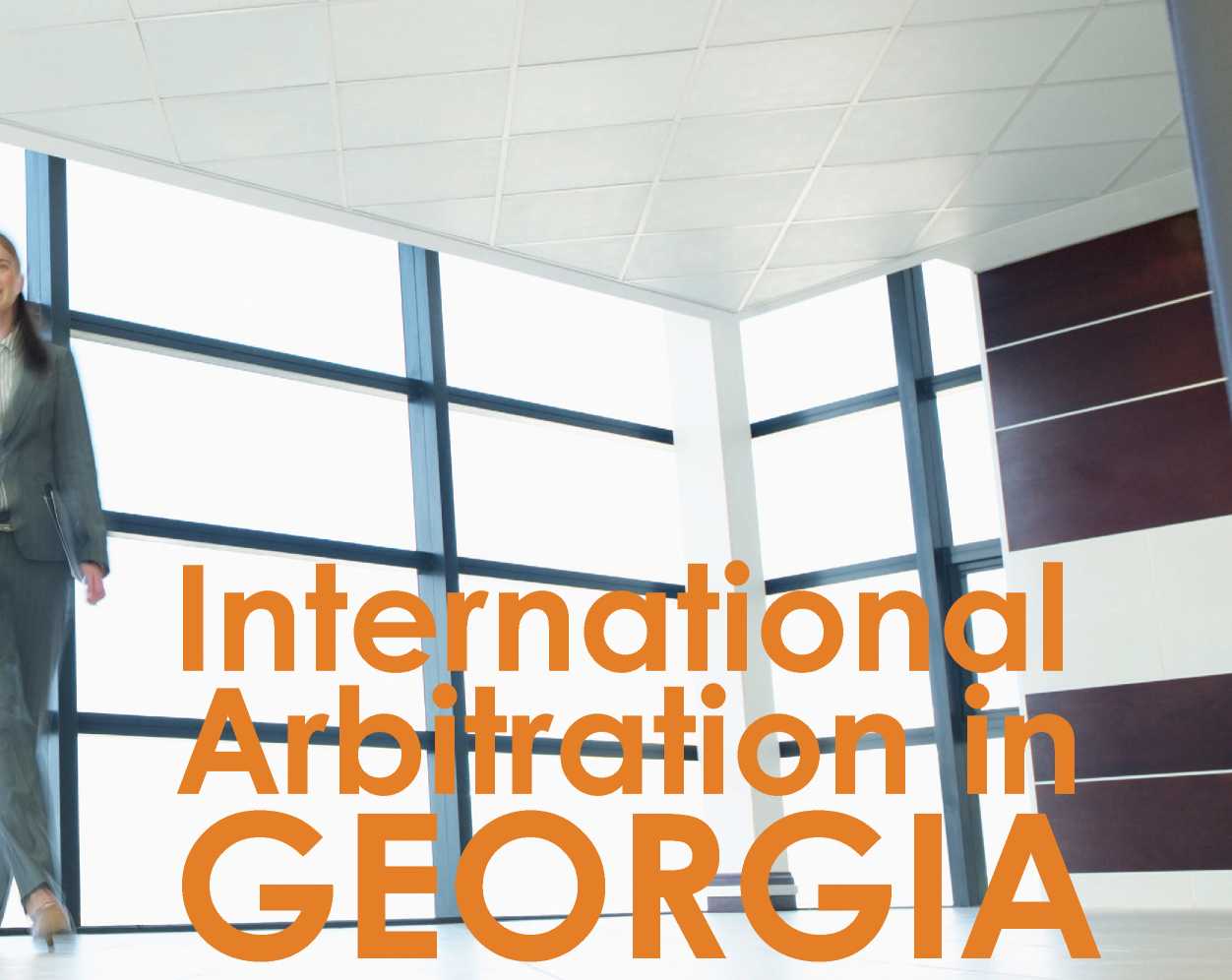International Arbitration in Georgia
| Jurisdiction | United States,Federal,Georgia |
| Citation | Vol. 16 No. 6 Pg. 0012 |
| Pages | 0012 |
| Publication year | 2011 |
by Daniel J. King, Brian A. White and Ryan J. Szczepanik
Georgia businesses are engaged in foreign direct investment and in international commerce on a grand scale. For example, in addition to the resources available to U.S. businesses generally, the Georgia Department of Economic Development notes that the state of Georgia is home to "the world's busiest passenger airport, two deepwater ports and the most extensive surface transportation network in the country."[1] In addition, Georgia is home to "consular, trade or chamber of commerce offices" from 76 foreign countries[2] and has its own international offices in 11 foreign countries and the European Union. Simply put, Georgia businesses are part of the global economy, and Georgia is an attractive environment to foreign companies conducting business in the United States.
Cross-border commerce brings with it the possibility of cross-border disputes. Outside the United States, it is unusual to see a commercial agreement involving parties from more than one country that does not include an international arbitration agreement, and international arbitration agreements involving U.S. parties are increasingly common. Additionally, the use of international

arbitration has expanded significantly in recent years. During the period from 1995 to 2005, three major arbitration institutions (the International Chamber of Commerce, the London Court of International Arbitration and the American Arbitration Association/ International Centre for Dispute Resolution) reported an increase in their combined caseload from approximately 650 cases to more than 1,200 cases.[3]
International arbitration differs from domestic arbitration in a number of ways, and it is important for clients and practitioners to understand these differences. In addition, it is important to site the arbitration in an appropriate forum. Georgia is unusual in the United States in that Georgia has a separate arbitration statute governing international arbitrations that respects the important differences between domestic and international cases. Thus, Georgia has a number of advantages as a place of arbitration that could lead to greater use of international arbitration in this state. This article will explore (1) the reasons why parties to international commercial transactions choose arbitration to resolve their disputes, (2) basic legal principles and procedural rules governing international arbitrations and (3) some advantages that may be gained by choosing Georgia as the place of arbitration.
Why Choose International Arbitration?
International arbitration is an alternative to litigation for protecting contractual rights and enforcing contractual obligations. Arbitration should result in a final, binding award that can be enforced like a court judgment but without appeals on the merits of the dispute. Arbitration is viewed as particularly attractive in the context of any crossborder contract, any contract involving entities from different legal traditions (e.g., common-law versus civil-law traditions), transactions taking place in developing countries and contracts involving states and other government entities.
International arbitration agreements and international arbitration awards are enforceable in most countries pursuant to the 1958 Convention on the Recognition and Enforcement of Foreign Arbitral Awards (the "New York Convention"). More than 140 countries (the "contracting states"), including the United States, have acceded to this treaty.[4] Experience has shown that it is generally easier and quicker to enforce an international arbitration award issued in a developing country than it is to enforce a court judgment issued in a developed country, such as England, with a sophisticated legal system similar to our own.[5]
Parties also are attracted to international arbitration because the decision-maker can be a neutral third party sitting in a neutral forum rather than a court sitting in the home country of one of the parties. Generally, the parties will have some say in the selection of an arbitrator or an arbitral tribunal, and the parties can select arbitrators with relevant expertise.[6] Finally, arbitration provides a level of procedural flexibility that can be tailored to the needs of individual cases, although there are a number of widely-accepted characteristics of international arbitration procedure that will not be familiar to most U.S. Litigators.
The Legal Regime Governing International Arbitration
As the U.S. Supreme Court has explained, an international arbitration agreement "involves considerations and policies significantly different" from those in the domestic context.[7] Thus, "the Court consistently has treated 'truly international agreements' differently than domestic transactions"[8] and, in doing so, has developed a federal policy dictating that the duty to enforce arbitration agreements is even greater in the context of international arbitration than in domestic arbitration.[9]
The most important considerations for parties considering entering into an arbitration agreement are (1) whether the arbitration agreement will be enforced by the courts, either in the place of arbitration or in the place where the counter-party resides; and (2) whether the final award will be enforceable in the appropriate court or courts. A party from Georgia needs to understand the answer to these questions under the Georgia Arbitration Code[10] (the "GAC"); the Federal Arbitration Act[11] (the "FAA"); the New York Convention;[12] the law of the home country of the counterparty to the contract; and, possibly, the law of any jurisdiction where either party has assets.
The Georgia Arbitration Code
Georgia has taken heed of the federal policy favoring international arbitration and adopted its own international arbitration-friendly policy by implementing the GAC. Moreover, Georgia is one of the few states in the United States in which its arbitration code contains rules pertaining to international arbitrations.[13] Thus, Part I of the GAC applies to both domestic and international arbitrations, and Part II includes specific rules applicable to international arbitrations only.
In particular, the GAC applies "to all disputes in which the parties thereto have agreed in writing to arbitrate and shall provide the exclusive means by which agreements to arbitrate disputes can be enforced," with the exception of certain enumerated agreements.[14] O.C.G.A. § 9-9-3 requires Georgia courts to enforce agreements to arbitrate, and O.C.G.A. §§ 9-9-12 through 9-9-15 require the Georgia courts to enforce arbitration awards with few exceptions. The GAC goes on to explain that its international arbitration rules were devised "to encourage the use of arbitration in the resolution of conflicts arising out of international transactions effectuating the policy of the state to provide a conducive environment for international business and trade."[15]
There are several important differences between the GAC's international arbitration rules and the GAC's domestic arbitration rules of which Georgia practitioners should be aware. For example:
▪ In a domestic arbitration, the arbitrator(s) "shall notify the parties [of the hearing] in writing, personally or by registered or certified mail or statutory overnight delivery, not less than ten days before the hearing ."[16] In an international arbitration, that notice period is extended to 30 days.[17]
▪ In a domestic arbitration, a demand for arbitration shall specify that the party served with the demand "shall be precluded from denying the validity of the agreement or compliance therewith or from asserting limitation of time as a bar in court unless he makes application to the court within 30 days for an order to stay arbitration," and "the party served must make application within 30 days to the court for a stay of arbitration or he will thereafter be precluded from denying the validity of the agreement or compliance therewith or from asserting limitation of time as a bar in court."[18] In an international arbitration, the referenced 30-day time periods are doubled to 60 days.[19]
▪ In a domestic arbitration, an application to the arbitrators for a change in the award "shall be made by a party within 20 days after delivery of the award to the applicant," and the arbitrator(s) "shall dispose of any application made [for a change in the award] in a written, signed order within 30 days after service upon them of objection to change or upon the expiration of the time for

service of this objection."[20] In an international arbitration, the referenced 20-day and 30-day time periods are doubled to 40 days and 60 days respectively.[21]▪ While in a domestic arbitration an award shall be made within 30 days following the close of the hearing if the agreement does not otherwise specify or the court does not impose another deadline,[22] there is no time limitation for making an award in an international arbitration.[23]
Georgia practitioners likewise should be aware that the GAC incorporates the well-established international legal principle of Kompetenz-Kompetenz, which provides that arbitrators have jurisdiction to resolve questions about their own jurisdiction without referring the matter to a court.[24] The GAC articulates the Kompetenz-Kompetenz principle as follows: "The arbitrators may rule on their own jurisdiction, including any objections with respect to the existence or validity of the arbitration agreement."[25]
The Federal Arbitration Act
The key arbitration statutes under federal law are set forth in the FAA, which applies to any arbitration involving a transaction in interstate or foreign commerce.[26] Section I of the FAA governs domestic arbitrations, and Section II governs international...
To continue reading
Request your trial
